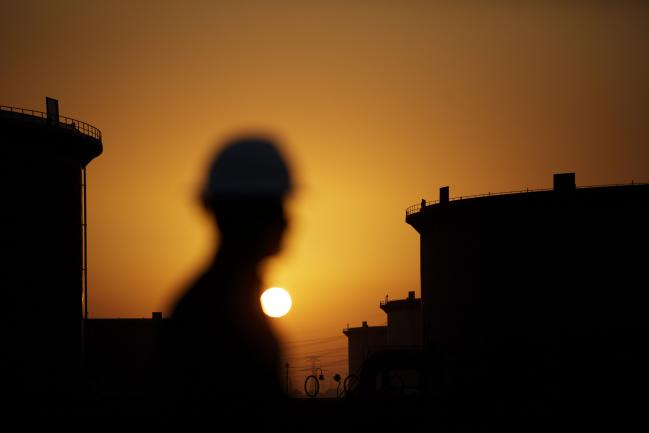(Bloomberg) -- Oil rose in a late rally ahead of inventory data on Wednesday and after Libya once again closed its top oil field shortly after reopening.
Crude traded for a loss for most of the session as the market grapples with a surplus of fuels, most notably diesel. But demand optimism got a boost when New Jersey lifted its stay-at-home order and increased gathering limits. New York’s Westchester and Rockland counties entered the second phase of reopening Tuesday, while Long Island is set to do so on Wednesday, and New York City reached a milestone on testing.
In the latest set of preliminary data on implied demand from the Energy Information Administration, gasoline consumption in the U.S. advanced for a second week, while distillates, including diesel, took a step backward. Usage of those fuels is about 20% below year-ago levels while jet fuel consumption is down much more, almost 80%.
“API and EIA anticipation were the drivers” of the rally, said Tom Finlon of Houston,-based GF International, referring to oil’s rally late in the session to close near $39 a barrel.
Refineries -- particularly in Europe and the U.S. -- are trying to make as little jet fuel as possible because demand from the aviation industry still remains far below where it was before the pandemic struck. And that means producing more diesel. Similarly, refineries cannot meet a recovery in gasoline consumption without boosting their overall processing rates -- and that too brings more diesel.
Crude has rebounded since dropping below zero in April as output cuts by the OPEC+ producer alliance reduced a global glut and demand picked up following the easing of lockdown restrictions in some countries. However, with a surplus of fuels swamping the market, Goldman Sachs Group Inc (NYSE:GS). has turned bearish on oil in the short term due to poor returns from refining.
“The weight of the relative value of distillate is slowing a price advance,” said Finlon.
Read: A Glut of Diesel Is Quietly Undermining Oil Price Resurgence
The American Petroleum Institute reported that U.S. crude inventories rose by 8.42 million barrels the week ended June 5, according to people familiar. If the Energy Information Administration confirms the build it will be the biggest expansion since late April. The industry organization also said that distillate supplies rose 4.27 million barrels.
Earlier, Saudi Arabia decided to end additional supply curbs this month, and that means the cartel’s total supply reduction this month of almost 11 million barrels a day will taper gradually in the coming months.
Iraq has asked some Asian refiners to consider forgoing prompt shipments of its Basrah crude, raising speculation that OPEC’s second-biggest producer is trying to comply with pledged output cuts. The country and some others were recently pulled up by Saudi Arabia and Russia for pumping above their quotas.
©2020 Bloomberg L.P.

